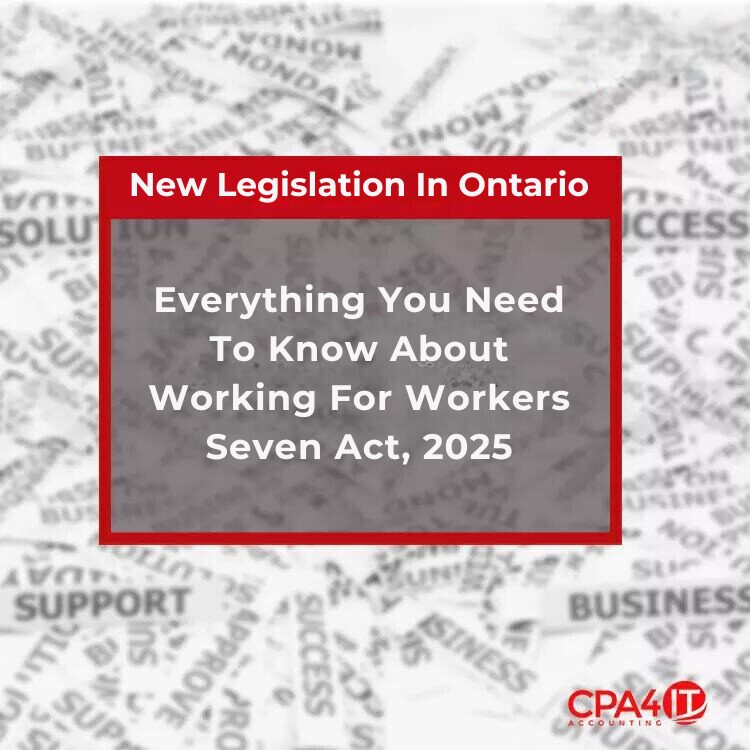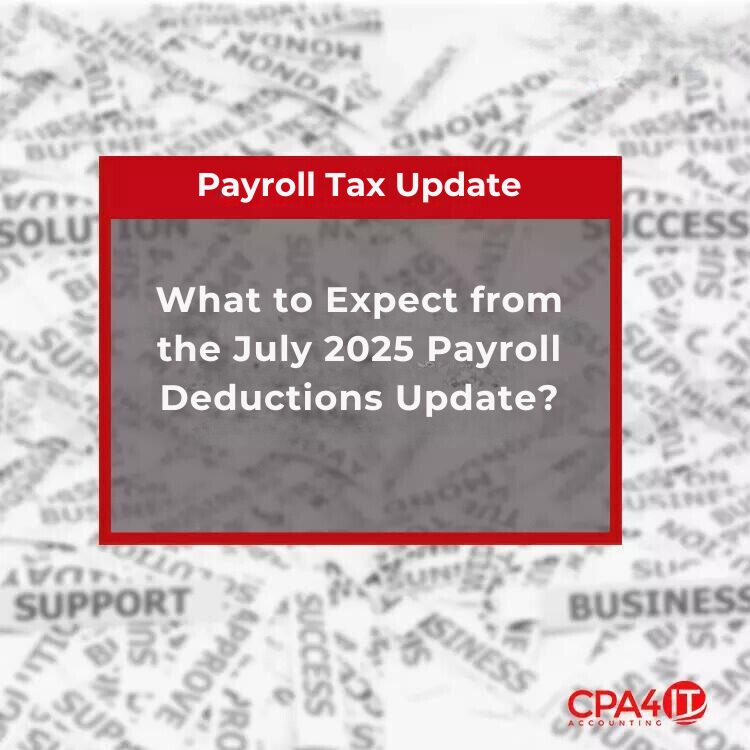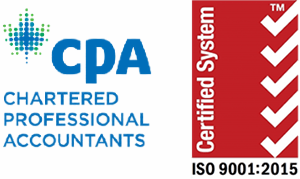Understanding Employee vs. Independent Contractor Status
Overview of CRA Guidelines
We begin by discussing the distinction between an employee and an independent contractor. The Canada Revenue Agency (CRA) provides a helpful guide, listed as CRA Guide RC4011, which delineates the differences between these two statuses. The guide addresses various factors such as control, tools and equipment, subcontracting work, financial risk, and the responsibility for investment and opportunity for profit. This guide is an essential resource for understanding the CRA’s perspective on this matter.
Legal Considerations and the Role of Judgment
However, it’s important to recognize that this guide, despite its utility, is just that—a guide. It’s crucial to understand that neither the CRA nor an employment standards inspector ultimately determines one’s status as an employee or an independent contractor. Instead, this decision typically rests with a judge should disputes arise. Ideally, such issues are resolved with the inspector or agent early on to recognize one’s status as an independent contractor, thereby avoiding litigation.
The Importance of Perspective
This document serves as a useful tool for grasping the CRA’s view, but remember that it is authored from their single perspective. You, along with your accountant and lawyer, might have differing viewpoints which hopefully align with the CRA’s. If discrepancies occur, a judge may need to intervene to resolve these differences.
Sector-Specific Insights for IT Consultants
Adapting Standards to the IT Sector
The guide acknowledges the unique aspects of the information technology sector, where standard rules might not apply as they would in other industries. For example, due to security concerns, IT consultants often face restrictive rules about using personal devices at work. The recognition of different levels of control necessary in an IT environment as opposed to traditional trades like painting or plumbing is a positive development.
Understanding the Impact of Workplace Language
Another critical aspect discussed in the document relates to the language used in contracts and workplace policies. For instance, an IT consultant might be required to work at the client’s business location, but this factor is considered neutral if it’s solely for security reasons or the nature of the work demands it. However, if the presence at the business location allows the client to monitor and direct how tasks are performed, this could indicate an employee relationship. It highlights how the interpretation of language and the context in which it is used are pivotal in determining the relationship between the worker and the employer.
Distinctions in Control for Independent Contractors
Control Over Outcome vs. Process
As an independent contractor, it’s critical to understand that while your client may have control over the outcome of your work, they should not control the process by which you achieve this outcome. A common analogy to explain this is the scenario with a painter: You can specify what colors to use and which rooms to paint, but you wouldn’t dictate the techniques used for painting, such as brush strokes or taping methods. This distinction between controlling the outcome (what is done) and controlling the process (how it is done) is fundamental in distinguishing an independent contractor from an employee.
Compliance with Workplace Policies
Another significant aspect concerns following the rules and procedures at the workplace. Often, independent contractors mistakenly claim they adhere to all client policies, which might include specific working hours or codes of conduct. However, as independent contractors, it is essential to maintain your own policies that merely reflect—rather than replicate—the client’s, ensuring you meet contract requirements without compromising your independent status.
For instance, if a painter arrived at a house at an unscheduled time like 3 AM for work, they would likely be dismissed. Similarly, if an independent contractor attends the workplace outside the agreed hours, it could lead to termination of the contract. Thus, aligning your policies to those of your client is crucial but should not undermine your independence.
Professional Guidance and Legal Considerations
The complexity of these matters underscores the importance of consulting knowledgeable professionals, such as accountants and tax lawyers, especially if issues escalate to tax reassessments or court. Working with experts who have a successful track record in these cases is invaluable.
Understanding Personal Service Businesses
Defining Personal Service Business
Next, we delve into the concept of a personal service business (PSB), which differs from the general independent contractor versus employee scenario because it involves a specific type of legal entity. While an independent contractor can operate either through a corporation or as a sole proprietor, a PSB is strictly a corporate entity. A common misconception is that sole proprietors cannot be assessed as a PSB, which is technically true since a sole proprietorship is not an incorporated entity. However, they can still be treated similarly to a PSB in terms of tax implications, such as being unable to deduct certain expenses and facing potential penalties.
Legal and Tax Risks for PSBs
The Income Tax Act provides specific criteria that define a PSB, focusing on whether the services provided could classify the worker as an employee if not for the corporation’s existence. This definition is crucial for understanding the tax implications and planning necessary to avoid being categorized as a PSB. Unfortunately, many independent contractors do not meet the exception of having more than five full-time employees, which complicates their situation further.
Current Trends and Legal Challenges
Currently, the climate for CPAs and independent contractors, outside of Bill 140, is generally favorable compared to the past. Historically, the biggest threat to incorporated independent consultants, especially in IT, was the scrutiny from the Canada Revenue Agency (CRA) regarding personal service businesses (PSB). The CRA conducted a special project targeting PSBs to ascertain if contractors genuinely operated independent businesses. This project led to numerous reassessments, imposing significant financial penalties on those identified as PSBs. These reassessments often resulted in the denial of expense claims and higher tax rates on retained earnings within corporations, with penalties extending into the hundreds of thousands of dollars for some.
Despite the severity of these penalties, the statistical likelihood of being classified as a PSB remains low, involving only a small fraction of consultants, even in targeted audits. Successful defenses against these reassessments were made possible by skilled legal teams, notably those handling cases for AKB, which successfully defended every case they undertook.
Settlements and Legal Precedents
Many cases from this special project were resolved through consent judgments—settlements made outside of court. This method, while effective at resolving individual cases, does not contribute to broader legal precedents that could benefit other accountants and lawyers in defending similar cases. The CRA’s strategy often involved pursuing cases they were likely to win while settling those they were less confident about. This pattern historically led to many lost cases for independent contractors at the taxpayer level, though recent trends show a shift towards more successful early defenses.
Risk and Impact
The impact of being classified as a PSB can be devastating, akin to a shark attack: intense and severe for those affected, but relatively rare. This analogy illustrates the importance of careful planning and risk assessment in independent contracting. Just as one might avoid swimming in waters flagged for shark activity, contractors should avoid business practices that significantly increase their risk of negative legal and tax outcomes.
Historical Context and Landmark Cases
It’s crucial to understand the historical context of these issues, as they are not solely tax-related but also pertain to employment law. Landmark cases such as the Wehbe door and the Saddest case from 1986 have established the criteria still used today to determine the nature of contracting relationships and the definition of PSBs. Understanding these criteria and the evolution of related laws is essential for navigating the complexities of independent contracting.
Current Trends and Legal Considerations for Independent Contractors
Understanding Ownership of Tools and Risk
The discussion continues with employment lawyers analyzing areas of control, which includes supervision and ownership of tools. Traditionally, tools referred to physical items like a computer, but in modern court cases, tools are more often understood as the knowledge and expertise an independent contractor brings to a project. This interpretation highlights the importance of intellectual contributions alongside physical tools.
Additionally, the concept of risk for profit and loss remains a vital indicator of independent contractor status. An example to illustrate this is the role of insurance in business operations. Having insurance demonstrates a management of risk, thereby supporting the classification of a business owner rather than an employee.
Recent Legislative Changes: Bill 148
Bill 148, while widely recognized for its adjustments to minimum wage, has significant implications for the independent contracting community due to changes in the Employment Standards Act and Labor Relations Act. One key section, 5.11, stipulates that an employer cannot misrepresent an employee as an independent contractor. This legislation has introduced stricter penalties for violations, with fines up to $50,000 per misclassified contractor.
Since the implementation of Bill 148, there has been a noticeable slowdown in the market as agencies reassess their contracts with independent contractors. Many agencies have begun thorough assessments to ensure contractors are correctly classified to avoid penalties.
The Impact of Regulatory Changes on Contracting
The shifts in regulation, particularly in the United States, where the independent contracting environment has faced challenges, underline the importance of maintaining clear and compliant operational practices. Despite the pressures, independent contracting remains essential for businesses relying on a contingent workforce.
To adapt, it’s crucial for independent contractors to substantiate their independence through comprehensive assessments. These evaluations are as vital as a resume in proving one’s status and ensuring continued employment opportunities. To assist, many firms are developing tools to help contractors and recruiters confidently verify independent contractor status.
Strategies to Minimize Risks for Independent Contractors
Historical Context and Evolving Practices
Since 1984, our firm has been at the forefront of advocating for the rights of independent contractors to incorporate and benefit from the small business deduction. Initially, this was a controversial stance, with many firms rejecting independent contractors on the grounds that they were ineligible for these benefits. Over the decades, this strategy has become mainstream among the big four accounting firms and is widely accepted across the country.
However, it’s crucial for independent contractors to not only appear as businesses but to operate substantively as businesses. This includes understanding and being able to articulate what distinguishes them from employees to effectively defend their status when challenged.
Case History and Legal Successes
Over the past 40 years, we’ve handled tens to hundreds of cases involving the classification of independent contractors, maintaining a perfect record in defending our clients. Despite this success, it’s important to recognize that these cases still represent a very small fraction of the total market and audits conducted, underscoring that the risk, while significant in impact, remains low in probability.
Practical Measures to Reduce Risk
- Employee Clause: One quirky yet impactful ruling from a case in Oregon concerning a CFL player who used the small business deduction involves having more than five employees. This ruling is somewhat arbitrary and doesn’t necessarily reflect the realities of most new or small businesses, let alone independent contractors. Some strategies involve forming consortia of contractors to bypass this rule, but these are not universally recommended as they may be viewed as loopholes that could be closed in future regulatory tightening.
- Contract Clarity: Ensuring that you have a robust and clearly worded written contract is paramount, particularly on the personal service business side. The contract should explicitly support your status as an independent contractor, emphasizing the business-like nature of the relationship rather than an employment arrangement.
- Limiting Contract Length: Using contract terms strategically can also demonstrate risk for profit or loss, which is a critical element in distinguishing between contractors and employees. It’s important to note that no case has been definitively decided based on the length of tenure alone; however, it contributes to the overall assessment of the contractor’s status.
- Diversifying Client Base: Although challenging, having multiple clients can significantly strengthen the argument that you are operating a business, as it shows you are not exclusively dependent on one source of income, which is a typical characteristic of employment.
Client Diversification and Dependency
It’s crucial for independent contractors to maintain a balanced client portfolio to mitigate risks associated with being classified as an employee. Even if you have multiple clients, the Canada Revenue Agency (CRA) may focus on the dependency on a single major client, which could jeopardize your status. Achieving a more equitable balance among clients can help demonstrate true independence, reducing the risk of misclassification.
Asset Protection and Holding Companies
One common strategy to protect personal assets in the event of legal challenges is the use of holding companies. These entities can safeguard accumulated wealth, ensuring it remains protected even if reassessments occur. This approach is part of a broader asset protection strategy that every independent contractor should consider.
Professional Profile and Public Perception
Managing your professional image extends beyond personal interactions and into the digital realm. For instance, how you represent yourself on LinkedIn can significantly impact your independent contractor status. Profiles should clearly reflect independent contracting work rather than suggesting employment with a specific company. Additionally, maintaining a professional website that outlines your services can further solidify your business presence.
Importance of Proper Business Identification
The name of your business also plays a crucial role. A company name like “Andrew Wall Consulting” communicates clear independence compared to more generic or ambiguous names. Including a name search as part of the incorporation process ensures your business identity aligns with your services, supporting your independent status.
Handling Multiple Business Ventures
For those looking to diversify their business activities, such as combining consulting with online sales, setting up distinct operating divisions within the same corporate entity is advisable. This structure allows for separate bank accounts and clearer financial separation, maintaining clarity and compliance without the need for multiple corporate entities.
The Importance of Professional Representation
One illustrative case is the Gomez case, involving a contractor from the CRA itself, who was assessed as a personal service business and chose to represent himself in court. Unfortunately, without adequate legal representation, he lost the case. This example underscores the critical importance of engaging experienced professionals to navigate complex legal and tax issues. Expert advice is not just beneficial; it’s essential to avoid common pitfalls that could lead to misclassification or legal challenges.
Innovative Tools and Risk Management for Independent Contractors
Comprehensive Support and Resources
Our firm offers unique tools and services to support independent contractors in minimizing risk related to personal service business assessments and employment law issues. These include:
- Audit Representation Protection: We provide representation at no additional cost if you are assessed, ensuring you have access to knowledgeable resources without financial burden.
- Personal Service Business Protection: It is extremely important to protect yourself from being classified as a Personal Services Business (PSB) by the Canada Revenue Agency (CRA). Fortunately for our clients, at CPA4IT we have the knowledge and expertise to ensure that your business is taxed as a small business and not a PSB.
Enhancing Business Presentation and Compliance
It’s crucial for independent contractors to maintain a professional image that aligns with their business status. This includes:
- Professional Online Presence: Your LinkedIn profile and other social media should reflect your role as an independent contractor rather than an employee of a corporation. Additionally, a dedicated website that showcases your services can further cement your status as an independent business entity.
- Clear Business Identity: Your business name should be indicative of your services, like “Andrew Wall Consulting”, rather than vague or impersonal. Our incorporation packages include a name search to help ensure your business identity aligns with your services.
- Diverse Business Operations: For those interested in pursuing multiple business lines, we recommend setting up distinct operating divisions within the same corporate entity. This allows for clearer financial delineation and compliance.
Strategic Legal Representation
One notable example underscoring the importance of professional representation is the Gomez case. The individual in question, a contractor at the CRA, chose to represent himself and ultimately lost his case. This highlights the critical need for experienced legal counsel to navigate the complex landscape of tax and employment laws effectively.
Employment Law vs. Tax Law
When addressing employment law, the focus often shifts slightly compared to tax law, with a greater emphasis on the contract details, the business presentation, and the nature of the contractual relationship. Historically, employment law has been stricter, with more cases ruling in favor of employee status compared to independent contractor status. This contrast underlines the importance of a well-constructed and clear contract to maintain independent contractor status.
Maintaining Contractor Status
To solidify your status as an independent contractor, ensure the following:
- Control and Independence: The contract should clearly stipulate that you control the process of your work, not just the outcome, which distinguishes you from being an employee.
- Risk for Profit and Loss: Demonstrating potential for profit and carrying insurance for potential losses are vital in reinforcing your business status.
- Comprehensive Contracts: Even if you engage in long-term contracts, strengthening other aspects of your business practice can help maintain your independent status. Inspectors and judges consider the cumulative effect of all factors, not just one, in determining your status.
We Are Here To Help!
Here at CPA4IT, our goal is to do more than just measure value, we create it. We are committed to help business owners organize finances, create wealth, and transform that wealth into a legacy. If you would like to learn how we can help you retain more of your hard-earned money, book a FREE consultation with our experts today!






